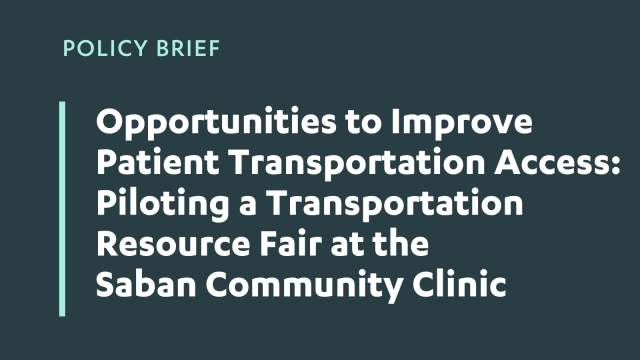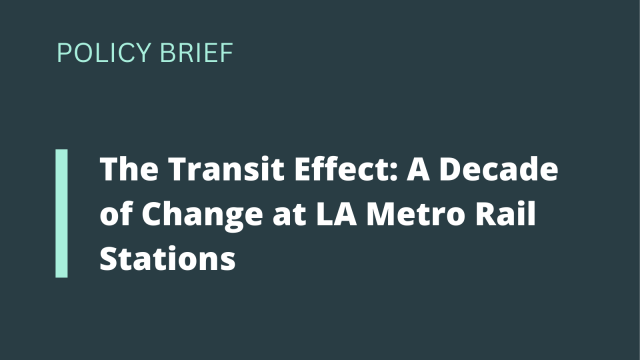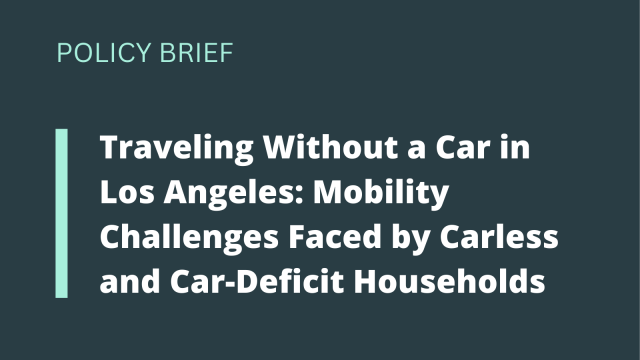Piloting the Future: Strategies for Short-Term Transportation Projects
This research is intended to support the implementation of a program led by the Southern California Association of Governments (SCAG) to support new transportation-related pilot projects in the region through 2026. Although pilot projects have become popular in transportation planning and other policy sectors, often to test new technologies or ideas before fully committing to them, agencies are struggling to turn their successful pilots into permanent programs. To further analyze the use of transportation pilots in the U.S., 15 interviews with practitioners were conducted and seven case studies of specific projects were analyzed. Findings revealed many shared experiences across agencies, despite their unique circumstances. Identifying long-term funding and adequate staff capacity were some of the most commonly cited challenges, but pilots can also come up against unexpected external barriers. Pilot-operating staff must be adaptable and willing to make significant adjustments or give up on a project when necessary. Also crucial are the method and scale of pilot evaluation, communication strategies with the public before and during the pilot, and partnerships with local organizations or universities. The recommendations provided for SCAG and other agencies are organized into five categories: long-term planning, goals and evaluation, partnerships, community involvement, and decision-making. This research contributes to a growing interest in the use of pilot projects for streamlining government processes and promoting risk-taking and innovation in public agencies.



